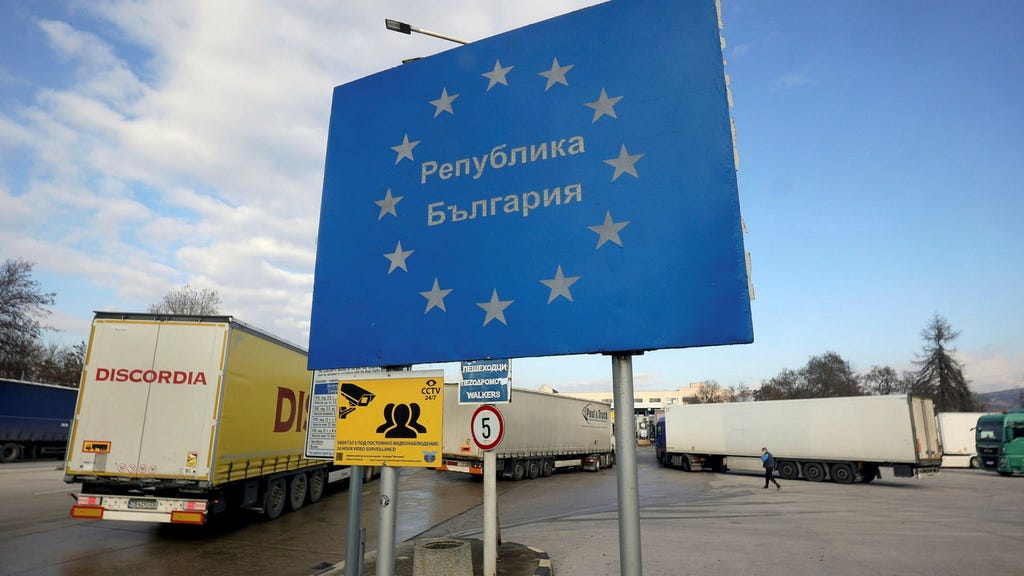Romania and Bulgaria’s Long-Awaited Schengen Accession: A Triumph of Persistence and Cooperation
After a protracted 16-year wait, Romania and Bulgaria have finally achieved full membership in the Schengen Area, marking a significant milestone in their integration into the European Union. Joining the EU in 2007, these nations faced numerous hurdles and setbacks before ultimately securing their place within the passport-free zone. This achievement allows Romanian and Bulgarian citizens to travel freely within the Schengen Area, enjoying the same privileges as citizens of other member states, without the need for passport controls at internal borders. This newfound freedom of movement not only strengthens the ties between these countries and the rest of Europe but also symbolizes the EU’s commitment to fostering unity and cooperation among its member states.
The journey to Schengen membership has been a long and arduous one for both Romania and Bulgaria. They met the technical requirements for accession as early as 2011, as confirmed by the European Commission. However, political obstacles and concerns raised by certain member states, particularly regarding border security and migration management, repeatedly delayed their inclusion. The Netherlands and Austria, in particular, expressed reservations about the ability of Romania and Bulgaria to effectively control their external borders with non-EU countries. These concerns stemmed from fears of increased illegal migration and organized crime within the Schengen Area.
The eventual breakthrough came after intensive negotiations throughout 2023, culminating in Austria lifting its veto. This decision paved the way for a unanimous vote in favor of Romania and Bulgaria’s Schengen accession. Sweden, a strong advocate for their inclusion, played a significant role in facilitating the process. Swedish Justice Minister Gunnar Strömmer emphasized the importance of honoring the commitments made to Romania and Bulgaria, highlighting that they had fulfilled all the necessary criteria for membership. He also acknowledged the importance of addressing Austria’s concerns, demonstrating a commitment to finding a balanced solution that respected the interests of all member states.
Despite the broad consensus within the EU, the decision was not without its internal political complexities, particularly in Sweden. While the Swedish government ultimately supported Romania and Bulgaria’s Schengen accession, the Sweden Democrats, a member of the ruling coalition, voiced opposition. Their concerns centered on potential increases in crime rates, particularly theft, trafficking, and begging. This internal disagreement underscored the complexities of balancing national interests with broader European integration goals. However, the dissenting voice of the Sweden Democrats did not derail the overall process, reflecting the strong commitment to Schengen expansion within the EU.
The inclusion of Romania and Bulgaria in the Schengen Area brings numerous benefits, both for the newly admitted countries and the wider European community. For Romania and Bulgaria, it signifies a significant step towards full integration into the EU, fostering closer economic and social ties with other member states. The free movement of people facilitates trade, tourism, and cultural exchange, contributing to economic growth and improved living standards. It also strengthens their sense of belonging within the European family, reinforcing their commitment to shared European values and principles.
For the Schengen Area as a whole, the expansion strengthens the principle of free movement, a cornerstone of European integration. It enhances security cooperation and information sharing among member states, contributing to a more cohesive and secure Europe. It also streamlines cross-border travel and trade, simplifying bureaucratic procedures and reducing costs for businesses and individuals. The inclusion of Romania and Bulgaria further solidifies the Schengen Area as a symbol of European unity and cooperation, demonstrating the EU’s ability to overcome challenges and work towards a common goal. The successful accession of Romania and Bulgaria underscores the transformative power of European integration and paves the way for a more inclusive and prosperous future for all member states.














